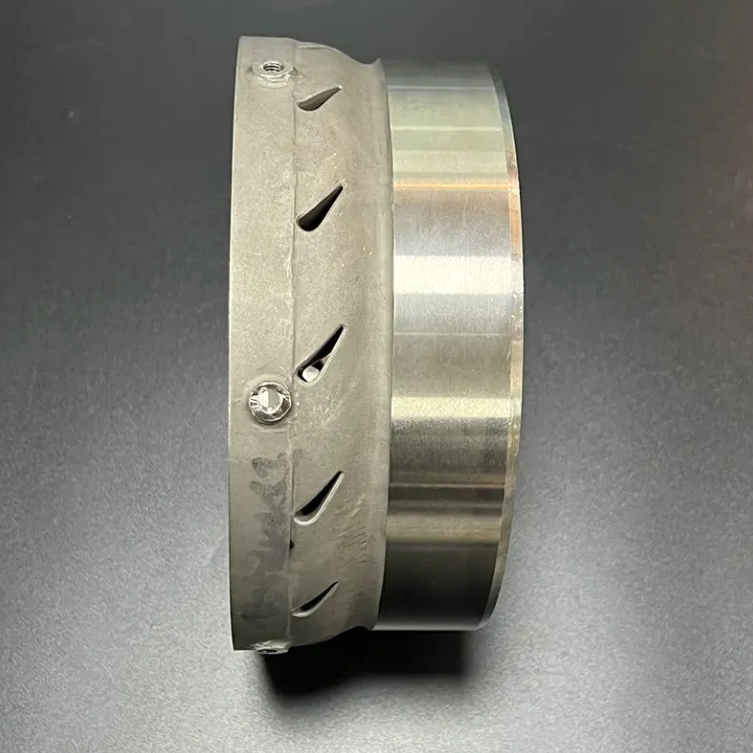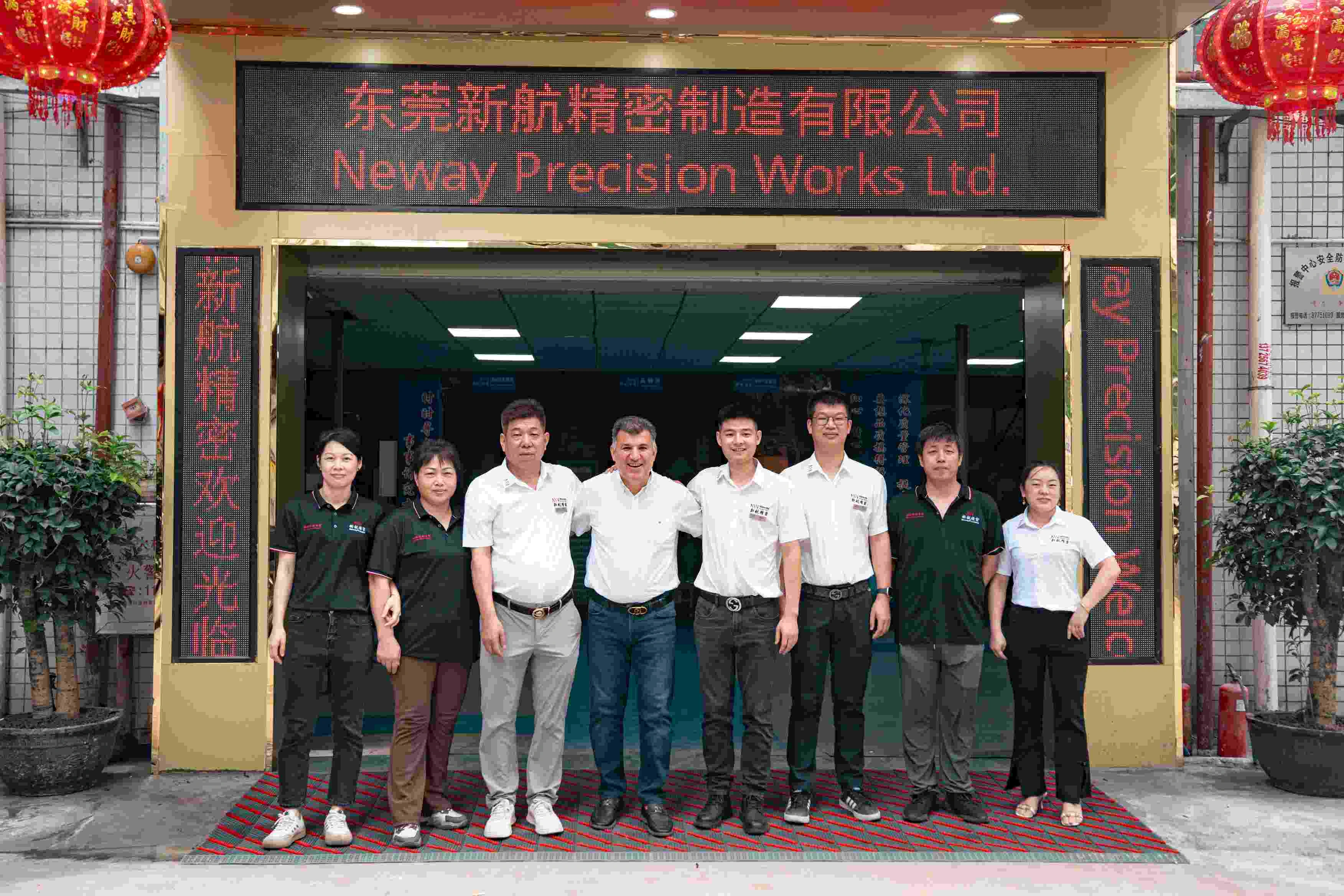Superalloy Rene 65 Turbine Nozzle Ring Equiaxed Crystal Casting Supplier
Introduction
Rene 65 is a high-performance nickel-based superalloy engineered for excellent creep resistance, high tensile strength (~1250 MPa), and oxidation resistance up to 980°C. With a fine grain structure and optimized γ' strengthening phase, Rene 65 is ideal for manufacturing turbine nozzle rings that operate under extreme thermal and mechanical stresses in aerospace and industrial gas turbines.
At Neway AeroTech, we specialize in producing Rene 65 turbine nozzle rings through precision equiaxed crystal vacuum investment casting, ensuring outstanding mechanical integrity, dimensional accuracy, and superior high-temperature performance.
Key Manufacturing Challenges for Rene 65 Nozzle Rings
Maintaining strict chemical composition (Ni base, Cr ~13%, Co ~13%, Mo ~4%, Ti ~2.3%, Al ~3.7%) to optimize creep and oxidation resistance.
Controlling solidification rates (~5°C/min) to promote uniform equiaxed fine grains and minimize casting defects.
Achieving dimensional tolerances within ±0.05 mm for aerodynamic efficiency.
Ensuring high-quality surface finishes (Ra ≤1.6 µm) for optimized gas flow performance.
Equiaxed Crystal Casting Process for Rene 65 Nozzle Rings
The production process includes:
Wax Pattern Fabrication: Precision wax models produced with ±0.1% dimensional consistency.
Shell Building: Multiple ceramic slurry layers and zircon sand coatings for high-strength mold shells.
Dewaxing: Steam autoclaving at ~150°C ensures clean wax removal while preserving shell integrity.
Vacuum Melting and Pouring: Rene 65 alloy melted at ~1400°C and poured under vacuum (<10⁻³ Pa) to avoid oxidation.
Controlled Solidification: Slow cooling to form equiaxed grains that enhance creep and fatigue resistance.
Shell Removal and CNC Machining: Shells removed, final dimensional adjustments completed by precision machining.
Comparative Analysis of Casting Methods for Nozzle Rings
Process | Surface Finish Quality | Dimensional Precision | Mechanical Strength | High-Temp Resistance | Cost Level |
|---|---|---|---|---|---|
Equiaxed Crystal Casting | Good (Ra ~3 µm) | High (±0.05 mm) | Excellent (~1250 MPa) | Outstanding (~980°C) | Moderate |
Vacuum Investment Casting | Excellent (Ra ≤1.6 µm) | Very High (±0.05 mm) | Superior (~1240 MPa) | Outstanding (~980°C) | Moderate |
Sand Casting | Moderate (Ra ~12 µm) | Moderate (±0.5 mm) | Good (~1000 MPa) | Moderate (~850°C) | Low |
CNC Machining from Billet | Excellent (Ra ≤0.8 µm) | Very High (±0.01 mm) | Superior (~1250 MPa) | Outstanding (~980°C) | High |
Optimal Manufacturing Strategy for Rene 65 Nozzle Rings
Equiaxed crystal casting provides Ra ~3 µm finish, ±0.05 mm precision, and excellent creep and fatigue strength for primary and secondary stage rings.
Vacuum investment casting achieves Ra ≤1.6 µm finish, ±0.05 mm precision, and outstanding oxidation resistance for thin-walled critical components.
Sand casting is applicable for non-critical nozzle rings with moderate mechanical requirements and lower surface quality needs.
CNC machining from billet offers Ra ≤0.8 µm, ±0.01 mm tolerances, and maximum precision for customized or small-volume high-precision rings.
Rene 65 Alloy Performance Overview
Property | Value | Application Relevance |
|---|---|---|
Tensile Strength | ~1250 MPa | High mechanical strength for turbine inlet environments |
Yield Strength | ~1100 MPa | High operational stress tolerance |
Maximum Operating Temperature | ~980°C | Maintains strength and oxidation resistance |
Creep Resistance | Superior | Extends nozzle ring life under sustained load |
Fatigue Strength | ~650 MPa | Withstands cyclic thermal-mechanical stresses |
Advantages of Using Rene 65 for Nozzle Rings
Outstanding high-temperature strength ensures structural integrity up to 980°C turbine conditions.
Superior creep and fatigue resistance extends service intervals and operational life.
Excellent oxidation resistance maintains aerodynamic surfaces under hot gas stream exposure.
Good casting capability enables complex aerodynamic designs with fine microstructure control.
Post-processing Techniques for Rene 65 Nozzle Rings
Hot Isostatic Pressing (HIP): Removes microporosity, improving fatigue and creep life by 15–25%.
Solution and Aging Heat Treatment: Optimizes γ' strengthening phase for maximum mechanical performance.
Precision CNC Machining: Final finishing to ±0.01 mm tolerances and Ra ≤0.8 µm aerodynamic surfaces.
Surface Polishing and Shot Peening: Enhances fatigue strength and aerodynamic efficiency.
Inspection and Quality Assurance for Nozzle Rings
Coordinate Measuring Machine (CMM): Ensures critical dimension control within ±0.05 mm.
Ultrasonic Testing (UT): Detects internal flaws ensuring structural integrity.
Dye Penetrant Testing (PT): Identifies surface cracks down to 0.002 mm width.
Metallographic Analysis: Confirms grain size and microstructure meet aerospace material standards.
Industry Applications and Case Study
Rene 65 nozzle rings manufactured by Neway AeroTech are widely used in high-performance aerospace engines, industrial gas turbines, and energy-generation turbines. In a recent aerospace application, Rene 65 nozzle rings demonstrated a 30% longer operational life under 950°C service conditions than conventional nickel-based alloys, significantly improving maintenance cycles and turbine efficiency.
FAQs
What dimensional tolerances can Neway AeroTech achieve for Rene 65 nozzle rings?
Why is equiaxed crystal casting optimal for manufacturing Rene 65 turbine components?
How does Rene 65 perform compared to other nickel-based alloys in turbine applications?
What industries commonly use Rene 65 nozzle rings?
How does Neway AeroTech ensure metallurgical and dimensional quality for Rene 65 castings?

